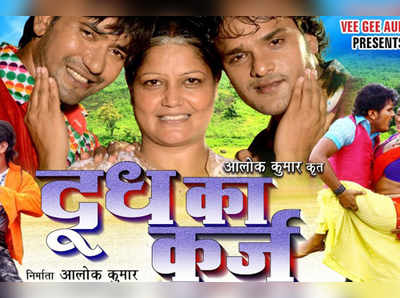

Yeh paisa (“this cash”) is visually a riotous mélange of flashing disco lights, revolving stages, chorus lines, and costumes vaguely suggestive of a postmodern Cossacks-meet-Gauchos sock hop-the imaginary world of middle class youth culture and “pop music” (which virtually did not exist outside of the cinema in 1980’s India) inspires a desisendup of a downmarket Las Vegas revue. Her insistence that Kali will have to give back her son in order for him to pay the “debt for milk” ( dudh ka karz) that he owes her leads into the film’s title sequence, which is superimposed over the first musical number featuring Ravi Verma’s reincarnation, roughly twenty years later, as a pop idol named Monty (Rishi Kapoor). “Pinky” (Abha Dhulia), but the former is evidently a Kali devotee, and she harangues the goddess (in the form of a bazaar poster) over her son’s untimely death, an injustice done by one Mom to another. We never learn how this “accident” is explained to Ravi’s adoring mother (played by the great Durga Khote) and sister Jyoti/a.k.a. 25,000 per month.Īs the newlyweds drive through the estate and listen to Ravi’s favorite rock tune on the jeep radio (with a guitar riff that will serve as a leitmotif throughout the film and the melody of its most celebrated song, Ek hasina thi), Kamini contrives a car “breakdown” near an isolated shrine to goddess Kali and then drives over her unfortunate spouse while he is lecturing her about his mother’s love-a murder artfully (and lengthily) staged to highlight Kamini’s sadistic depravity and to make Ravi a blood sacrifice to the ambivalent cosmic Black Mother who is sole witness to his death. By agreeing to marry Ravi and then dispose of him within several days, the widowed Kamini will, through a legal loophole, win back the property for Sir Juda and secure for herself the status of “queen” of its palatial home, along with a queenly income of Rs. Sir Juda soon conceives a plan to regain the estate by contracting with Kamini (Simi Garewal), a wayward damsel (our first glimpse shows her lighting a cigarette-always a bad sign in women) with whom young Ravi is unwisely infatuated.
KARZ MOVIE CODE
Played by the aging and now paunchy Premnath, he is a typical specimen of the Ghai villain: vaguely “Western”/foreign, monstrous (unable to speak, he communicates with his henchmen through a sort of Morse code conveyed by tapping on whiskey glasses), and utterly ruthless. Viewed through the lens of Khan’s tour-de-force homage, KARZ acquires greater interest for those who didn’t actually grow up with it.Īs the film opens, a young man named Ravi Verma (Raj Kiran) wins a legal battle to recover his family’s tea estate near Ooty (the nickname of Udagamandalam/Ootacamund, a hill station in Tamil Nadu) that had been seized by the (Anglo-Indian?) former partner of his father, one Sir Juda (the Shemaroo DVD’s rather dodgy subtitles first curiously Hindi-ize this as “Surjuda,” and later Anglicize it in spades as “Sir Tudor”!). The impact that this hit film, which is as much music-driven as plot-driven, had on a generation of young viewers (and future actors and filmmakers) has been wittily celebrated in Farah Khan’s extraordinarily entertaining OM SHANTI OM (2007), a film that induced me (and, doubtless, others) to go back and revisit KARZ. If Ghai seldom appears to be an innovator in popular Hindi cinema, KARZ nevertheless displays him at his best: as an agreeably beguiling hack. One of Ghai’s first big hits, KARZ remains something of a standout in his oeuvre because of its greater narrative cohesion and appealing reincarnation-based plot (which shows the influence of Bimal Roy’s celebrated 1958 film MADHUMATI), the enduring popularity of several of its songs and their picturizations, and its giddy and hyperbolic camerawork - all characteristics of the successful masalaopus of its era.

The highly successful masala films of Subhash Ghai may best be situated in the artistic lineage of Manmohan Desai, though they are often more incoherent and derivative, and politically more conservative and even jingoistic than those of the madcap auteur of the previous decade. Rahi Masoom Reza Lyrics: Anand Bakshi Music: Laxmikant, Pyarelal Cinematography: Kamalakar Rao


 0 kommentar(er)
0 kommentar(er)
